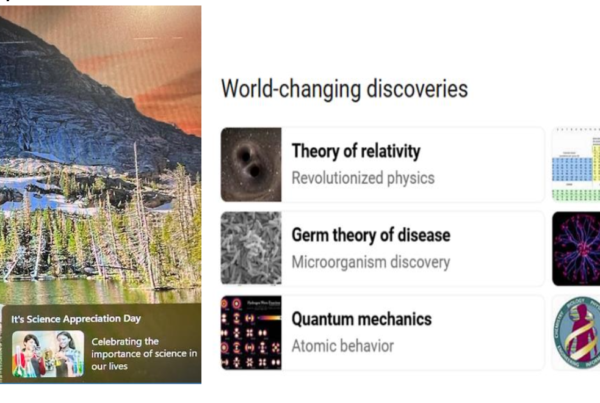Me Worry?
By Brent M. Davis, PhD
According to Statista.com1 the top three worries worldwide are inflation, poverty, and unemployment, or in other words – money (or the lack of it). In talking to some of our students, tests were more of a worry. According to Harvard Health Publishing2 we should worry about worrying if we experience “debilitating worry and agitation about nothing in particular, or anything at all.” Are you worried, yet?
The opposite of worry is peace. How can we have peace instead of worry? Win the lottery? Then you have to worry about theft! First, let’s distinguish between necessary management and unnecessary anxiety. In order to achieve desired outcomes, we need to pay attention to key results3: “Riches can disappear fast. And the king’s crown doesn’t stay in his family forever—so watch your business interests closely. Know the state of your flocks and your herds” Proverbs 27: 23 TLB. Management is necessary, worry isn’t.
 One of the popular therapies for anxiety is cognitive behavioral therapy (CBT).4 This is based on Beck’s model of emotion. There are striking similarities between Beck’s model and a scriptural approach to dealing with worry. In CBT, a therapist would help a client question the validity of a worrisome thought (Beck, 2020). Likewise, the Bible encourages us to have right beliefs which will enable us to deal with worry.
One of the popular therapies for anxiety is cognitive behavioral therapy (CBT).4 This is based on Beck’s model of emotion. There are striking similarities between Beck’s model and a scriptural approach to dealing with worry. In CBT, a therapist would help a client question the validity of a worrisome thought (Beck, 2020). Likewise, the Bible encourages us to have right beliefs which will enable us to deal with worry.
Here are some classic verses which should enable us to deal with worrisome thoughts:
Don’t worry about anything, but pray about everything. With thankful hearts offer up your prayers and requests to God. Philippians 4:6 CEV
“If you decide for God, living a life of God-worship, it follows that you don’t fuss about what’s on the table at mealtimes or whether the clothes in your closet are in fashion. There is far more to your life than the food you put in your stomach, more to your outer appearance than the clothes you hang on your body. Look at the birds, free and unfettered, not tied down to a job description, careless in the care of God. And you count far more to him than birds.
“Has anyone by fussing in front of the mirror ever gotten taller by so much as an inch? All this time and money wasted on fashion—do you think it makes that much difference? Instead of looking at the fashions, walk out into the fields and look at the wildflowers. They never primp or shop, but have you ever seen color and design quite like it? The ten best-dressed men and women in the country look shabby alongside them.
“If God gives such attention to the appearance of wildflowers—most of which are never even seen—don’t you think he’ll attend to you, take pride in you, do his best for you? What I’m trying to do here is to get you to relax, to not be so preoccupied with getting, so you can respond to God’s giving. People who don’t know God and the way he works fuss over these things, but you know both God and how he works. Steep your life in God-reality, God-initiative, God-provisions. Don’t worry about missing out. You’ll find all your everyday human concerns will be met.
“Give your entire attention to what God is doing right now, and don’t get worked up about what may or may not happen tomorrow. God will help you deal with whatever hard things come up when the time comes. Matthew 6: 25-34
Can anything ever separate us from Christ’s love? Does it mean he no longer loves us if we have trouble or calamity, or are persecuted, or hungry, or destitute, or in danger, or threatened with death? (As the Scriptures say, “For your sake we are killed every day; we are being slaughtered like sheep.”) No, despite all these things, overwhelming victory is ours through Christ, who loved us.
And I am convinced that nothing can ever separate us from God’s love. Neither death nor life, neither angels nor demons, neither our fears for today nor our worries about tomorrow—not even the powers of hell can separate us from God’s love. No power in the sky above or in the earth below—indeed, nothing in all creation will ever be able to separate us from the love of God that is revealed in Christ Jesus our Lord. Romans 8: 35-39
Let me draw your attention to a few points about how to apply these verses when we are tempted to worry: what to do instead, what to remember, and what to value.
What to do instead of worrying. If I tell you not to think about green monkeys, what are you thinking about? Similarly, if I say don’t worry about your test or inflation, what are you thinking about? Instead, pray about your test and inflation (not sure about the green monkeys, but they do fall into the category of everything). Prayer is better than worrying because you are getting help with the problem. Of course, the problem may be you (or me)!5
What to remember: God’s faithfulness. God cares about us. God know are needs. If we commit to God, God will commit to caring for us. A pastor, named George Muller decided (after seeking God’s will) to run an orphanage by only asking God to meet their needs, never a request to a person. While there were times that they had no money, money or food always showed up at the last minute for the next meal.6 Remember how God has shown His care for you, and trust that He will continue to do so.
What to value. What is most valuable to you? If your answer is the love of God, then you can never, ever lose that. If your answer is something else, then you have a bigger problem than worry – idolatry.
So, when you get sticker shock at the pump, when your text book seems to be all hieroglyphics, when it looks like your treasure is in danger, memorize, meditate on, and pray these words of scripture, and take a deep breath. In the words of Julian of Norwich:
“all shall be well, and all shall be well, and all manner of things shall be well.”7
References
Beck, J. (2020). Cognitive behavior therapy. Guilford Press.












